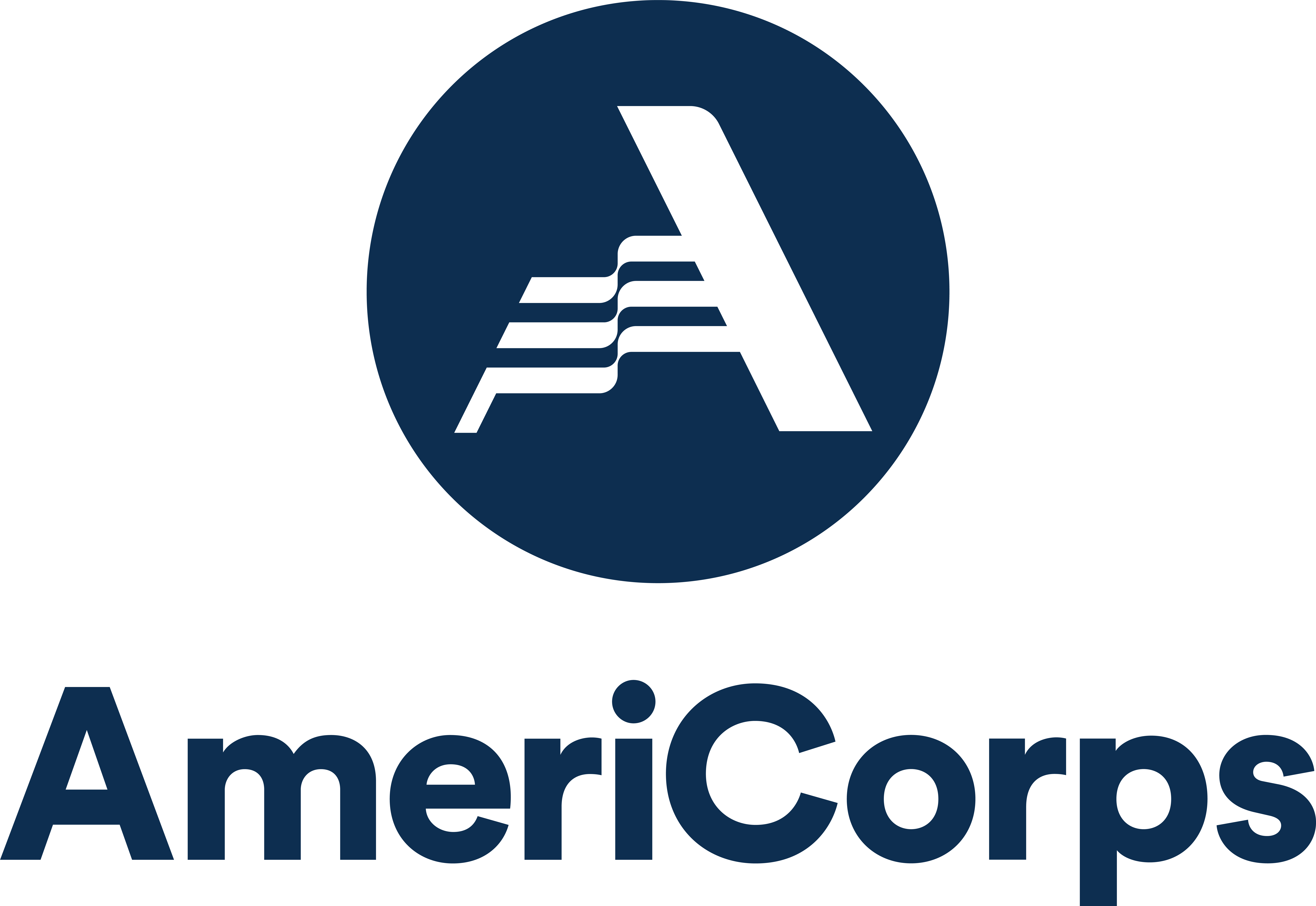Mike, '08-'09, and Julianna O'Brien, '11-'12, were both called to full-time jobs at CAP. Mike, who served many summers at Camp AJ before serving a year in Housing, is now the Coordinator of Camp AJ. Julianna, who also served at Camp AJ as well as with Family Advocacy, is now a coordinator in CAP's Housing program.
“I’m thinking about taking a year off.” It’s a common phrase among individuals considering long-term volunteer service. A year off before college, a year off before grad school, a year off before entering the “real world” of the workforce, or even a first year off at the beginning of retirement. You may have even found yourself using that phrase. Although prospective volunteers are not intending to do so, thinking of long-term service as a “year off” discounts the value of the experience--both the value of the talents and experience the volunteer is gifting the organization, and the value the volunteer is gaining from learning new skills, building professional experience, creating community, and growing in faith. We encourage prospective volunteers to think of long-term service as a “year on:” a year on for Appalachia, a year on for your faith, and a year on for professional growth.
In addition to gaining and applying universal skills which can be valuable in any for-profit or nonprofit career path, long-term service can also be an avenue to apply your education and gain experience in a specific career field—while greatly benefiting Christian Appalachian Project and our participants. Early Childhood Education majors can spend a year in a preschool in CAP’s Child and Family Development Centers, aspiring teachers can gain classroom experience in Educational and Recreational Programming, and future social workers can benefit from serving with elderly, low-income, and marginalized populations in our Elderly Services program, our food pantry, or our domestic abuse shelters. Retired volunteers can serve in these areas, but their experience may also lend itself to service in CAP’s Human Resources Department.
Though many volunteers enter their service experience with a clear career goal and apply for related service positions, some find their volunteer experience helps them to discover their vocation.
CAP Volunteer Alum Kelly Hicks (far left) leads a group from YouthGo, the nonprofit which she directs, to CAP's YouthFest alternative spring break program
“I would not be in my current job or field if it wasn't for my time spent with CAP, where I learned how passionate I was about working with youth,” says Kelly Hicks, ’00-’02, now Executive Director of the nonprofit YouthGo in Wisconsin. “At CAP, I gained skills in facilitation, program creation, and how to do a lot with a little.” Christina Amenta, ’07-’08, who studied graphic design in college, also sees her volunteer time as a critical point in her life.
“The experience that most guided special education as my chosen field was my year at CAP volunteering in the preschool," says Christina. "Working as an aide for kids who were behind the rest of the classroom is one of the main reasons I wanted to pursue a master’s in special education.”
When volunteers are preparing for their next step after service, highlighting their volunteer experience is important to landing that job or spot in a graduate program. Many younger volunteers (and sometimes their parents) have concerns that a year of service might be viewed as a gap in experience or may be difficult to explain to potential employers/programs unfamiliar with the organization with which they served, but often volunteering allows individuals to have responsibilities that differentiate them from other applicants. Lynn Hardesty, ’10-’11, found her experience serving in Family Advocacy gave her a leg up when applying to grad school in Speech Pathology, even though that position was not related to her field.
“I appreciated the independence and autonomy [of Family Advocacy],” Lynn says. “I don't think any of my fresh-out-of-college friends had that experience. CAP certainly set me apart when applying to grad school, which is especially helpful in a competitive field.”
Full-time service is just that—a full-time commitment with high expectations for professionalism and performance, regardless of compensation. For recent graduates who have never held a full-time position, being a CAP Volunteer is their first “real job” and should be treated as such on a resume, not relegated to an overlooked “volunteer work” section on the bottom. When the day-to-day tasks of a volunteer position do not correlate with the job for which one is applying (i.e. a Housing volunteer applying for a marketing job), volunteers may highlight skills developed through their experience such as project management and leadership. CAP’s affiliation as an AmeriCorps partner adds name recognition for employers or graduate programs who may not be familiar with CAP, but are familiar with the national service program.
Though most long-term CAP Volunteers will never be paid to swing a hammer or provide transportation to the elderly, all gain valuable experiences and skills they can later apply to whatever career to which God leads them. And for our volunteers who come to CAP at the completion of their careers, their skills and experience not only benefit CAP programs, also CAP's younger volunteers with whom they live and serve. No matter where you are in your professional development, volunteer service can be a great many things: a year to give of your talents and expertise, a year to gain real-world experience in your field, a first year of full-time professional experience, a year of vocation discernment. The only thing it can’t be is a “year off.”







